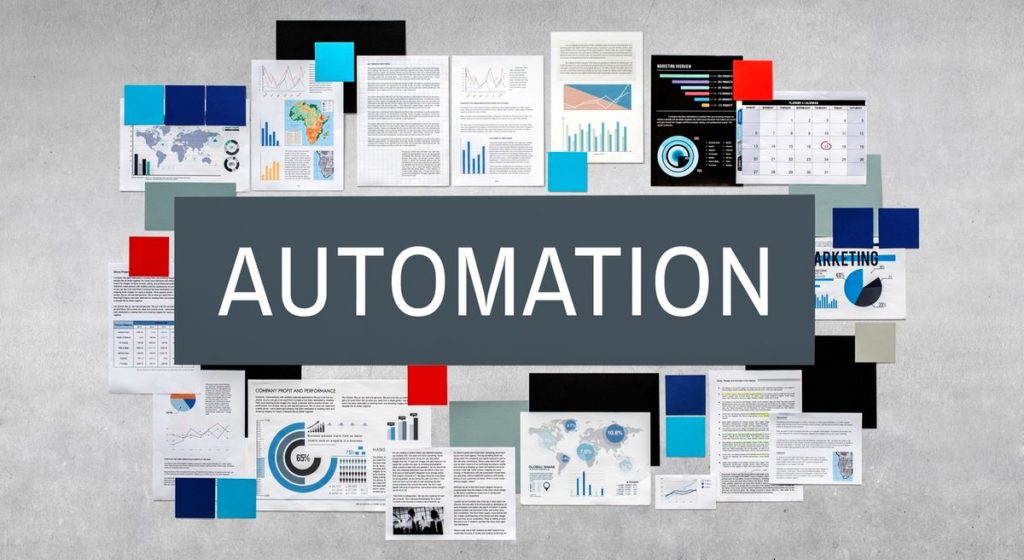Intelligent automation (IA) is applying digital technology to streamline business processes. It can automate repetitive tasks, eliminate human error, and speed decision-making.
What is Intelligent Automation?
Intelligent automation (IA) is the application of advanced technologies, including artificial intelligence (AI), robotics, and analytics, to manage workflows more efficiently and effectively. In many cases, IA can completely automate tasks previously performed by humans. For example, an organization might use intelligent automation to generate reports automatically based on data collected. In other cases, IA can augment human workers, helping them perform their tasks more efficiently. For instance, an IA system might provide customer service representatives real-time information about a customer’s purchase history. Ultimately, intelligent automation aims to improve efficiency and productivity while reducing costs.
Advantages of using Intelligent Automation
Intelligent automation empowers humans with advanced innovative technologies and agile processes for faster, smarter decisions. The key benefits of IA in business include the following:
Increase process efficiency
Intelligent Automation can help organizations increase process efficiency in some ways. First, it can automate repetitive tasks that need to be carried out regularly. This can free up employees’ time to focus on more strategic tasks. Second, Intelligent Automation can help standardize processes across an organization, making them more efficient and consistent. Finally, Intelligent Automation can give organizations real-time visibility into their operations, allowing them to identify bottlenecks and inefficiencies. By addressing these issues, Intelligent Automation can help organizations increase process efficiency and improve their overall performance.
Interpret Big Data
Interpret Big Data is a company that specializes in helping businesses take advantage of the power of big data. Intelligent automation is one of the ways that they help their clients do this. By automating repetitive tasks and processes, businesses can save time and money while also improving efficiency. One of the benefits of using intelligent automation is that it can help businesses make better decisions. When companies automate tasks, they can collect more data and analyze it more effectively. This can help identify trends and patterns that they would otherwise miss. Another benefit of intelligent automation is that it can help businesses improve customer service. By automating tasks, companies can provide their customers with more personalized service. This can help to build customer loyalty and result in repeat business.
Reduced costs
Intelligent automation can help reduce the costs associated with big data projects. Businesses can save on labor costs and increase efficiency by automating repetitive and time-consuming tasks. Additionally, intelligent automation can help to improve the accuracy and quality of results, further reducing costs associated with errors and rework.
Improved accuracy & quality
Intelligent automation can help organizations improve the accuracy and quality of their work. When automating repetitive tasks, intelligent automation can help to ensure that those tasks are carried out consistently and with high precision. This can lead to fewer errors and better overall results. Additionally, automating tasks can free up employees’ time to focus on higher-level, more complex tasks that require greater attention and care. This can ultimately lead to improved quality across the organization. Intelligent automation can help organizations improve both the accuracy and quality of their work.
Improve governance and fraud detection
When it comes to governance and fraud detection, Intelligent Automation provides a clear advantage. By automating the tedious and time-consuming task of data entry, organizations can reduce the chances of human error. This reduces the potential for fraud and improves overall governance.
In addition, Intelligent Automation can help organizations to better detect and prevent fraud. By automating the process of data collection and analysis, organizations can more easily identify patterns of fraudulent activity. This allows them to take proactive measures to prevent fraud before it occurs.
Make the most of bots
Bots have been increasingly adopted in many businesses and industries in recent years. This is due to the many advantages they offer over traditional communication and engagement methods. One of the key advantages of using bots is that they can help you automate repetitive tasks. For example, if you constantly have to answer the same questions from customers or prospects, you can use a bot to handle this for you. This frees up your time to focus on more critical tasks. Another advantage of using bots is that they can help you improve customer service. By using bots, you can provide instant responses to customer queries and complaints. This helps to resolve issues quickly and efficiently.
How have businesses benefited from Intelligent Automation?
Businesses have significantly benefited from intelligent automation. Companies can improve their efficiency and effectiveness by automating repetitive and low-level tasks. This in turn, leads to increased productivity and profitability. In addition, intelligent automation can help businesses improve their customer service levels by providing faster and more accurate responses to customer queries. Automation can also help enterprises to manage their inventory more effectively, reducing manual intervention and ultimately leading to cost savings. Finally, intelligent automation can help companies to improve their decision-making processes by providing accurate and up-to-date data. This can help businesses to make more informed decisions about their operations. Consequently, intelligent automation offers a range of benefits that can be highly beneficial for companies.

